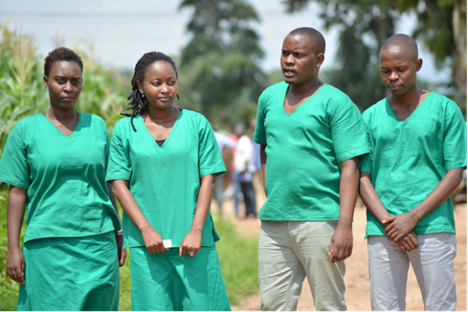Journalists in Burundi threatened by state violence
Submitted by fkakooza on

Journalists in Burundi are still faced with violence meted upon them by the state despite the change of government in 2020. Over the years, freedom of expression and the media has been restricted even to those who ought to practice it for the benefit of the people of Burundi. Burundi has faced a number of political challenges since it attained its independence in 1962. In 2000, the former President of South Africa, Nelson Mandela, facilitated the reconciliation process after a 12-year civil war. This reconciliation also implied better freedom of the press. However, state actors continue to hinder media operations with violence.
Desire Ndanziza, a journalist in Burundi, says that there are still many violations committed against journalists and yet the perpetrators seem not to be acted upon by those in authority. He notes that this has eventually led to the increasing number of exiles, tortures and arrests in the country. Ndanziza, who also doubles as the secretary of the Association of Women Journalists (AFJO) in Burundi, says that AFJO is mediating talks between political figures and journalists on how they can best work in an integrated manner.
He adds that the association is teaching journalists to uphold neutrality as they execute their duties. However, these efforts have been targeted by the state and its operatives thereby castigating those spearheading a peaceful media working environment. After the election of President Pierre Nkurunziza in 2005, relations between his National Council for the Defence of Democracy-Forces party and the media became greatly strained. With time, journalists experienced threats and intimidation from the National Communication Council (CNC), the media regulatory body, that acted in favour of government.
President Nkurunziza’s decision to run for a third term in office in 2015 worsened the press freedom situation in Burundi. The media coverage of protests against a potential third term saw a number of private media, which were flourishing, sanctioned and at least 1200 lives, including journalists, were lost. In 2020, Burundi organised elections amidst the COVID-19 lockdown. The government banned journalists from reporting about the election, and restricted foreign media like Voice of America (VOA) and the BBC from reporting about Burundi. Several media houses were suspended, journalists received threats and physical harassment, and security forces destroyed news equipment for journalists in the field.
Journalists, including Terence Mpozenzi, Egide Harerimana, Agnes Ndirubusa, and Christine Kamikazi who worked at the IWACU Press Group, were arrested in the line of duty in October 2019 and charged with complicity in undermining the internal security of the state. Other journalists such as Laurent Kagimbi, the former Chairman of the CNC, and Alexandre Niyungeko, the former head of the Burundi Journalists’ Union fled the country.
Burundi is ranked among the poorest performing countries in press freedom. According to the World Press Index of 2021, Burundi stands at position 147 out of the 180 countries, from the 142 position it occupied in 2014 before the political crisis. Nonetheless, the situation seems to be getting better under the new president, Évariste Ndayishimye, who has shown willingness to mend the relationship between the media and the state. For instance, he has instructed the National Communication Council (CNC) to dialogue with the suspended/banned media outlets. A few have been reopened, which has given journalists hope, but the question on whether the president is really mindful of the media’s role in Burundi still remains unanswered.
- 643 reads
